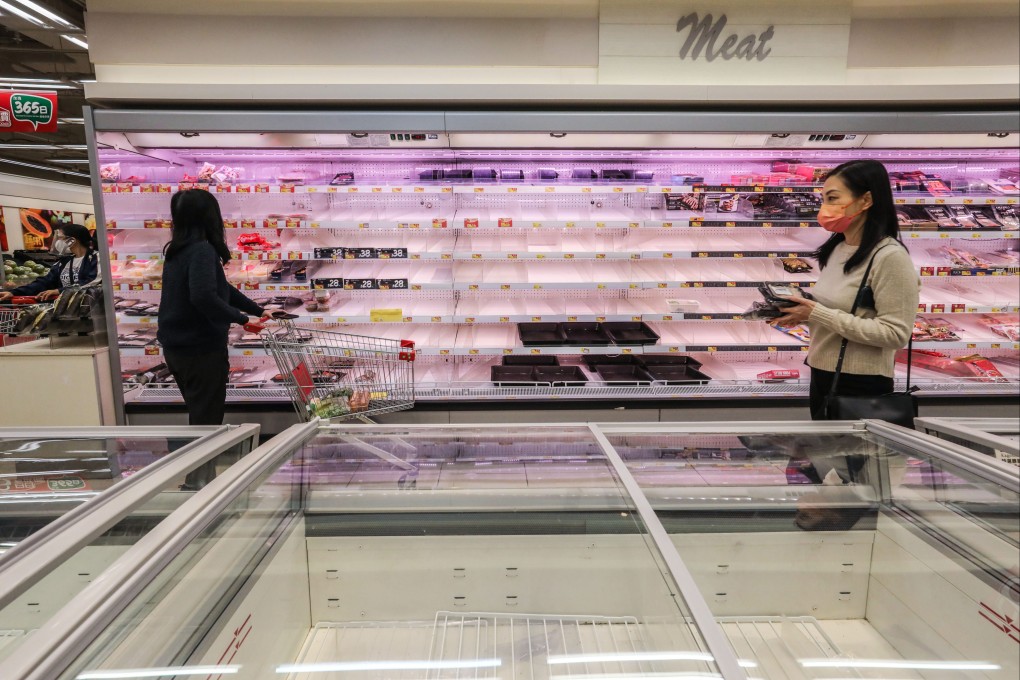Coronavirus: Hongkongers continue to panic buy at supermarkets, pharmacies as potential lockdown looms
- Residents rush to stock up on supplies despite government’s reassurance there is enough rice for entire population for 15 days
- Long queues of residents stocking up on frozen food, hygiene and cleaning supplies; they also converge outside some banks and ATM machines to withdraw money

The rush came even as the government reassured residents there was enough rice for the whole population for 15 days as required by law, while suppliers would generally stock enough for one month and reserve three months’ worth for items that could be stored longer, such as frozen food.
Officials said on Tuesday night they would start using rail transport to bring anti-epidemic supplies to Hong Kong, with the first train of nine cars arriving at Lo Wu on Wednesday afternoon.
Handover sites for non-fresh food items and other goods from mainland China are being set up at the airport, Kwai Tsing Container Terminal and the river trade terminal in Tuen Mun, with operations to start this week. Two more sites could be set up on private land at the Lok Ma Chau border control point.
In Tai Po, there were long queues of residents stocking up on frozen and instant food items, as well as hygiene and cleaning supplies at a ParknShop supermarket.